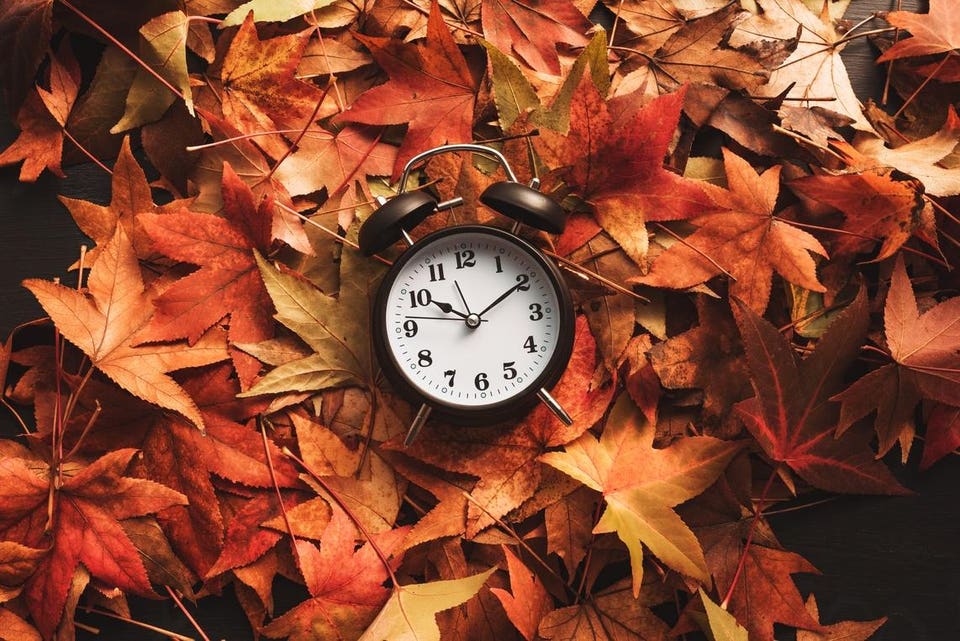
News
October 30, 2025
Is Daylight Saving Time Bad For You? Scientists Say Yes
Switching to and from Daylight Saving Time, which ends Sunday, Nov. 2, at 2 a.m., causes an uptick in heart problems, mood disorders and motor vehicle collisions.
**Is Daylight Saving Time Bad For You? Scientists Say Yes**
Brace yourselves for an extra hour of sleep this Sunday, November 2nd, at 2 a.m., as we revert to standard time. But before you celebrate that extra snooze, consider this: scientists are increasingly arguing that the twice-yearly ritual of springing forward and falling back might be doing more harm than good. Research suggests the seemingly minor shift in our clocks can have surprisingly significant consequences for our health and safety.
The end of Daylight Saving Time, while bringing the comfort of longer mornings, is often followed by a noticeable uptick in several health issues. Studies have pointed to a correlation between the time change and an increased risk of heart problems. Researchers believe this may be due to the disruption of our natural circadian rhythm, the body's internal clock that regulates sleep-wake cycles, hormone release, and other vital functions. Even a one-hour shift can throw this delicate balance off, putting extra stress on the cardiovascular system.
Beyond heart health, the transition can also impact our mental wellbeing. Mood disorders, particularly depression, have been observed to worsen in the days and weeks following the change. The disruption to sleep patterns and the sudden shift in daylight hours can exacerbate existing conditions and even trigger new episodes in susceptible individuals. The shortened daylight hours in the evening can also contribute to Seasonal Affective Disorder (SAD), a type of depression related to changes in seasons.
The consequences aren't just limited to health. Surprisingly, motor vehicle collisions also tend to increase around the time change. This is likely due to a combination of factors, including sleep deprivation, reduced alertness, and the challenges of adjusting to driving in different lighting conditions, particularly during the evening commute. Drivers may be more fatigued and less attentive, leading to an increased risk of accidents.
While the debate over the merits of Daylight Saving Time continues, the growing body of scientific evidence raises serious concerns about its potential negative impacts. As we prepare to "fall back" this weekend, it's crucial to be mindful of these potential effects and take steps to mitigate them. Prioritizing sleep, maintaining a regular sleep schedule, and getting plenty of sunlight during the day can help ease the transition and protect our health and safety. Perhaps it's time for a serious national conversation about whether the benefits of Daylight Saving Time truly outweigh the risks.
Brace yourselves for an extra hour of sleep this Sunday, November 2nd, at 2 a.m., as we revert to standard time. But before you celebrate that extra snooze, consider this: scientists are increasingly arguing that the twice-yearly ritual of springing forward and falling back might be doing more harm than good. Research suggests the seemingly minor shift in our clocks can have surprisingly significant consequences for our health and safety.
The end of Daylight Saving Time, while bringing the comfort of longer mornings, is often followed by a noticeable uptick in several health issues. Studies have pointed to a correlation between the time change and an increased risk of heart problems. Researchers believe this may be due to the disruption of our natural circadian rhythm, the body's internal clock that regulates sleep-wake cycles, hormone release, and other vital functions. Even a one-hour shift can throw this delicate balance off, putting extra stress on the cardiovascular system.
Beyond heart health, the transition can also impact our mental wellbeing. Mood disorders, particularly depression, have been observed to worsen in the days and weeks following the change. The disruption to sleep patterns and the sudden shift in daylight hours can exacerbate existing conditions and even trigger new episodes in susceptible individuals. The shortened daylight hours in the evening can also contribute to Seasonal Affective Disorder (SAD), a type of depression related to changes in seasons.
The consequences aren't just limited to health. Surprisingly, motor vehicle collisions also tend to increase around the time change. This is likely due to a combination of factors, including sleep deprivation, reduced alertness, and the challenges of adjusting to driving in different lighting conditions, particularly during the evening commute. Drivers may be more fatigued and less attentive, leading to an increased risk of accidents.
While the debate over the merits of Daylight Saving Time continues, the growing body of scientific evidence raises serious concerns about its potential negative impacts. As we prepare to "fall back" this weekend, it's crucial to be mindful of these potential effects and take steps to mitigate them. Prioritizing sleep, maintaining a regular sleep schedule, and getting plenty of sunlight during the day can help ease the transition and protect our health and safety. Perhaps it's time for a serious national conversation about whether the benefits of Daylight Saving Time truly outweigh the risks.
Category:
Technology